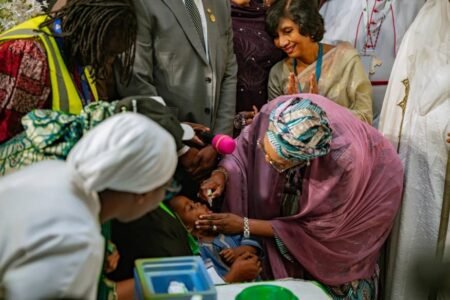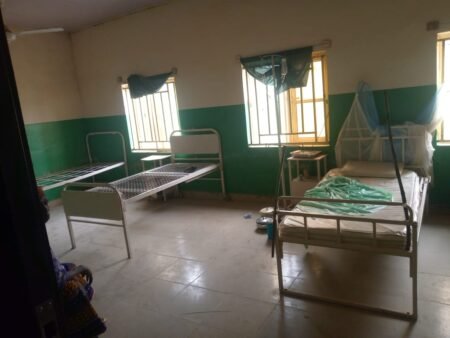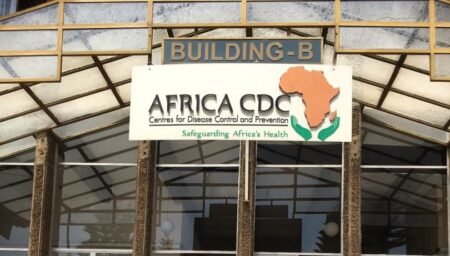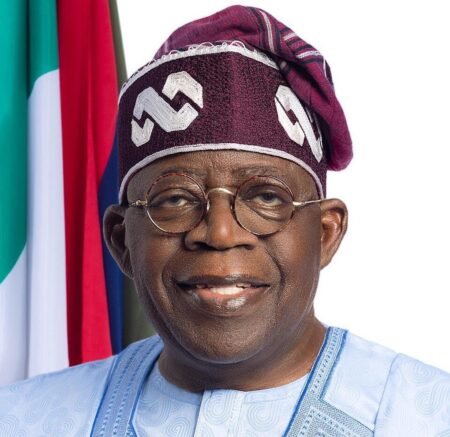The number of licensed medical and dental professionals in Nigeria increased from 64,949 in 2022 to approximately 66,241 in 2024, according to the Minister of State for Health and Social Welfare, Iziaq Salako.
This indicates an addition of 1,292 professionals within two years.
Mr Salako disclosed this on Thursday at the 2025 Business Day Health Conference in Abuja, themed “Transforming Nigeria’s healthcare landscape: Government reforms as catalysts for unlocking full potential of the healthcare value chain.”
He said the federal government is taking strategic steps to reposition the health sector as a productive investment area that contributes to national security, socio-economic growth and development.
According to him, the Nigeria Health Sector Renewal Initiative (NHSRI), launched in December 2023, forms the foundation of the government’s efforts to drive systemic and sustainable change.
Training, workforce expansion
Speaking on human resource challenges in the health sector, Mr Salako said Nigeria’s health workforce has faced years of underinvestment, poor working conditions, and emigration pressures.

To address this, he said the government introduced a comprehensive Human Resources for Health Development Strategy aimed at restoring the workforce pipeline and improving training capacity.
“The Federal Ministry of Health and Social Welfare is expanding training capacity across institutions that train health workers, including doctors, nurses, laboratory scientists and pharmacists,” he said.
He noted that since 2023, admission quotas for training medical and dental doctors have increased by 38 and 62 per cent, respectively, while the number of medical and dental schools has increased by 32 and 27 per cent in the same period, with an additional 20 schools at various stages of accreditation.
In 2024, a total of 4,399 medical doctors and 274 dentists graduated from Nigerian institutions. Also, 19 new nursing schools were established in the last two years.
Mr Salako added that about 15,000 health workers of various cadres were employed in 2024 following reforms in the recruitment process for federal health institutions.
He emphasised that the government is implementing a community health workforce development through the National Primary Health Care Development Agency (NPHCDA), increasing residency slots and internship placements, improving remuneration packages, and creating performance-based incentives to retain talent in underserved areas.
Migration management
The minister also highlighted efforts to retain health workers and improve motivation, especially in underserved areas. These include increased residency slots, more internship placements, better remuneration packages, and performance-based incentives.
He said the government has finalised a National Health Workforce Registry and introduced digital platforms to support personnel planning and oversight.
To address migration, the government is implementing the National Health Workforce Migration policy aimed at managing emigration and harnessing contributions from Nigerian professionals in the diaspora.
Energy for health
Beyond staffing, Mr Salako pointed to infrastructure challenges, particularly electricity, as a barrier to quality healthcare delivery.
He said the Federal Ministry of Health is implementing an Energy for Health initiative to provide reliable, low-carbon power to federal tertiary hospitals and selected primary health centres.
“In collaboration with the Ministry of Power, Rural Electrification Agency, and key development partners including the World Bank and Gavi, we are deploying solar hybrid systems and alternative energy solutions to eliminate outages and improve equipment functionality,” he said.
According to him, the initiative is already showing results, with facilities like the University of Maiduguri Teaching Hospital and Federal Medical Centre, Keffi, now running critical units without power disruptions.
To scale this, the ministry recently launched a new programme called Power in the Health Sector, which seeks to create a unified policy framework and attract more investment to address energy gaps in health institutions.
Gaps remain
Despite recent gains in licensing and workforce expansion, the Nigerian health sector continues to grapple with a mass exodus of medical professionals.
In April 2025, the Coordinating Minister of Health and Social Welfare, Muhammad Pate, said Nigeria has lost over 16,000 doctors within the last five to seven years.
READ ALSO: Nurses, doctors’ strike cripple services in public hospitals across Abuja, Lagos
Mr Pate described this as a major economic and human resource challenge.
Speaking at the seventh annual capacity-building workshop of the Association of Medical Councils of Africa (AMCOA), he said the estimated cost of training a single doctor in Nigeria exceeds $21,000, highlighting the fiscal damage of losing such a large number of trained professionals to other countries.
“This trend is not just about people leaving,” the minister said. “It represents a fiscal loss. The estimated cost of training one doctor exceeds $21,000, a figure that reflects the magnitude of public financing walking out of our countries,” he said.
Read the full article here















